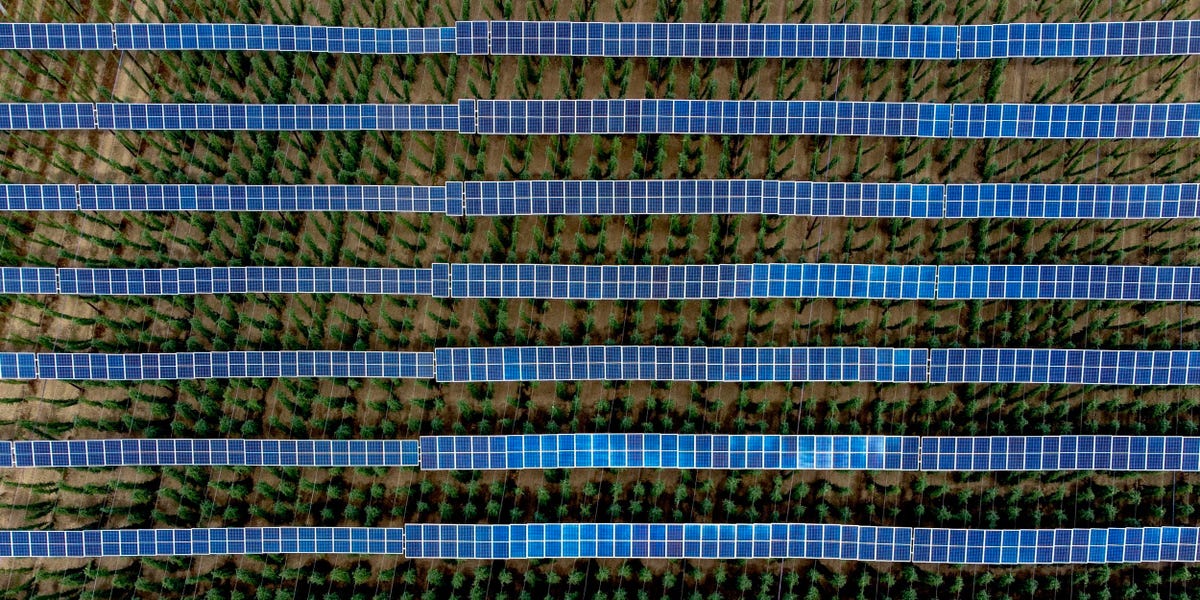Cheap energy being framed as some kind of problem is a great demonstration of why we need a free press that isn’t solely owned by billionaires
Oh no! Failing from success! /s
Free energy!
It gets even more absurd. The southern states blocked building large power lines to transport cheap wind energy south. Now they struggle because the chea renewable energy cannot go there. So while there is plenty of renewables in the north the south still runs coal plants to provide local energy. But then the people in the north have to pay for “network fees” because the South couldnt take their energy.
Because of this it was suggested to split the German energy market in two, where the south which fought against renewables would have to pay the actual electricity costs instead of leeching of the North that properly build up renewables. This was fought teeth and nails because the South of Germany is like Texas but with an even worse superiority complex.
The only issue is they have not enough storage capacity for the excess.
That’s a global problem unfortunately.
We do not yet have effective and economical means of storing energy in grid scale quantities that are readily deployable near where that power is consumed.
It’s a huge problem actually, the biggest one facing renewables like solar.
Do they have pumped hydro? Or maybe produce hydrogen intermittently with this surplus power…maybe sodium batteries will help with storage?
That’s the big, trillion-dollar question, right? Pumped hydro or air is the solution that definitely works, but air is extra lossy and hydro requires a huge reservoir. A battery system would be great, but Li-ion is expensive, so you need a new chemistry. For grid storage, density, hazard and even operating temperature and pressure are not strict requirements, only cost, so it seems likely they exist, and at least sodium is in the early stages of commercialisation already.
This is the entire reason why countries like China are investing hard into ultra-high-voltage transmission lines.
While regions like Xinjiang and Inner Mongolia have immense wind and solar potential, getting that electricity to the population centers is challenging.
Selling electricity to Eastern Europe, to Northern Africa, hell even to the Middle East is an option if Europe is truly operating an electricity surplus.
Europe and the US already have UHV transmission lines. Grid interconnects and long-distance transmission have voltage between 500kV-1,000kV
China is still developing its national grid.
Look at a map of the European power grid: https://www.researchgate.net/figure/Map-of-European-high-voltage-transmission-grid-Source-Adapted-from-GENI-2011_fig1_281127145
Now repeat your claim again, but this time be serious.
Power being priced negative is awesome. We need more of it imo, make energy so abundant that it makes processes that were previously too energy-intensive viable, and enables a massive increase in both residential and grid storage capacity.
My opinion is that Na-ion batteries are the way for bulk grid storage and apartment/home storage nya.
They use hyper abundant materials and are now reaching the point of decent endurance, and if you arent bothered by them being heavy (as is the case for grid and residential storage), they’re fairly comparable to Li-Ion without the usage of relatively rare Lithium.
Yeah, negative prices finally incentivize storage technologies such as battery storage.
How does it incentivize it?
The problem with energy storage isn’t a lack of incentives, it’s a lack of solutions. There are currently no proven, grid scale, economical, and robust energy storage solutions.
There are lots of storage solutions that work within limited geographical areas (ie. Pumped hydro). But past that it’s a crap shoot.
Batteries are absolutely nowhere near the capacity or longevity needed for grid scale storage.
The largest battery storage system in the world is primarily used for grid leveling and emergency power. And would be depleted in minutes under its maximum load.
Looks like it is possible to do in California already today, for hours, not minutes: https://reneweconomy.com.au/deeper-longer-cleaner-big-batteries-extend-domination-of-californias-evening-demand-peaks/
The battery solutions on grid scale are available now. They need to be built and paid for. Negative prices might help motivate investors.
TIL, thanks for the link!










